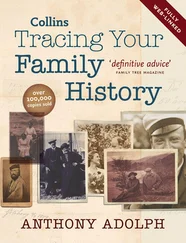The two other uncles, Mike and Tony, were gathered around the pool table, where Bobby and George, the former roof pissers, posed for the rest of us, their hair pomaded and combed back off their short foreheads. They looked like the dark, wrongful heirs in Shakespeare, who carry small knives concealed. They held pool cues, and pretended they knew the game, but after a while John and my father came and took the cues away from them and began shooting.
My father was a very precise athlete, a man who wasted no motion. He knew how to hold the cue, and his shots did what he wanted them to. He looked unsurprised afterward, even a little bored. John was clumsier. Once, after a particularly bad shot where he scratched the table, he leaned down and rubbed at the nap, and said to my father, “Meola’s bought a lot up here. Did you hear?”
“The dentist?” my father asked.
“Yes.”
My father made a motion with his mouth that was like shrugging.
“And Doc Semenza,” John said, preparing his next shot.
“So we’re up here with the hoi polloi,” my father said.
Someone, one of the uncles, had put on a record, Dean Martin, and when Dean Martin lapsed into Italian, Uncle Mike, who used to sing in a band that played at weddings (he worked for John now), began to sing along. At first John seemed amused by this, but as it went on, a kind of annoyance started to come into his face. Lucy, Mike’s wife, picked up on this, as though John’s shifting moods were setting the tone for everyone, and she shouted out, “You gonna get me something like this, Mike?” and then, glancing at John, as if for his approval, added, “In a pig’s eye.”
There were children in the room besides Bobby and George and me, five of them, some of them younger, and though they behaved in a respectful manner, every once in a while one of the smaller ones had to be reprimanded. This always came out louder, more angry than it needed to be. And every once in a while Carmela or Lucy would shout something insulting to one of their husbands, as though once that particular theme was introduced, it became a favorite.
Displaced from the pool table, my cousin George was leaning against a bank of windows, his hands behind him, staring at me. He had never much liked me, so his stare was unsettling, some hint of a challenge beneath it. That was the party: George staring at me, and bursts of noise followed by quieter pockets in which the only sound was that of my father and John moving around the pool table, the tops of their heads, my father’s smooth black hair and John’s bristly blond, lit by the glow of the lamp over the table. It was in one of these quieter moments that Lucy grabbed me, pulled me up close, and shouted, “So what are you gonna be when you grow up, huh, Luca? A fighter pilot?”
It had no meaning as a question, it was just Lucy’s way of bursting through the uncomfortable silence of the party, but they all reacted as if their ears had been cocked. John, my father, the uncles all laughed, and then when the words “fighter pilot” were repeated, a second wave of laughter followed. George narrowed his eyes and looked me over again. He moved across the room toward me, turning once, to glare at the others. He hadn’t laughed, the only one. When he faced me again, he said, “Come on. Come with me, fighter pilot.”
We went upstairs. He flicked on the lights that illuminated the living room, a deep, long room full of soft furniture, pastels, and light wood, a room full of turns and nooks, with, at the end, a great stone fireplace. My father had described this room to us; he had come back from his first viewing of John’s house and tried to make us laugh by describing the ornate furnishings, the sheer exuberance of John’s yearning for a life beyond that which he knew. That was when the word “Versailles” first entered our vocabulary, and my father began referring to John as “Louis the Sixteenth.” The memory of this derision stood between me and the room. I might have looked at it my father’s way, and his way alone, if I hadn’t been aware of the concentration with which George, standing next to me, was looking at it, a concentration that altered his breathing, made it reverent, and for a moment created a kind of intimacy between us.
He led me down the hall and opened the door to Bobby’s room and allowed me to look in. “Bobby’s room,” he announced. Then he opened another door. Inside was a crib and pink walls. “If they don’t have a girl, they’ll go apeshit,” George said.
George’s room was identical to Bobby’s. Both were brown and nearly bare, with only a bed and a dresser and a desk situated near the window. There were paintings on the walls, of boys catching footballs, boys playing golf. George sat at his desk and folded his hands. A neat pile of books lay on the corner of the desk: Geometry and Physical Science and Animal Farm . They had the overused look of books given to students in the lower depths of the high school, which was where George had always resided. The design of the room seemed a deliberate attempt to wipe clean the slate of George’s previous life, to make of him a more ambitious boy, a scholar. George drew one hand up, to pat his pomaded hair, and a shadow of trouble crossed his features.
George’s room was on the corner of the house, so he had two windows. He got up and went to the one that faced the side yard, the woods. His hands were in his pockets, and because of the light over his desk and the fact that there were no curtains yet, I could see the reflection of his face in the window, and the way he was looking at me.
He was short, shorter than Bobby, and less good-looking. Bobby was the handsome one, with a face like Fabian’s and a tall body in which he moved like a swimmer.
“So, welcome to our new lives, Luca,” he said.
He turned to me, and his face made a beckoning motion before he lowered his brow. He was thinking something over, whether or not to make some request. I said nothing, offered nothing. It was all too new, this sort of power shift between us.
“How old are you, Luca?”
I said eleven, soon twelve.
He sat down on the edge of the bed and touched his hair again. He looked at his school books, sullen and mistrusting, then reached under his bed. He pulled out a fat paperback and flipped through it. He chuckled. “This is good,” he said. “This is very good.”
He tossed it toward me. The throw didn’t quite make it. I picked it up. It was a purple book with a picture of a Victorian gentleman on the cover, a man with a long mustache.
“You go back downstairs, and the next time Lucy tries to treat you like a baby, you read her some of that, okay? Read it out loud.”
I knew that was not a good idea, but I nodded, because his face on the bed now wore a cruel little smile.
“You take it, and read it anyway. If you have any questions, you ask me.”
That was all. He dismissed me. And the next thing was, I was sitting alone in John’s living room.
I hadn’t known that was what I wanted to do, but I was drawn back there, rather than to the party itself. I sat and absorbed it all. The room was dark. The only sound was the bubbles sent up by the filter of the fish tank. I’d come to sit here for a reason, but I didn’t know exactly what that was. Our world was changing. I understood now why my parents had looked as they’d looked at home, preparing for this, charged and expectant. I sat there, and I tried to grasp it.
For the first time, I was able to see beyond my father’s vision of this room, to what John was trying to do here. We were princes now, Bobby and George and me, but how did you go about being a prince? What did it mean for your daily life? I knew this: the book in my lap was something to be ashamed of. I knew vaguely but, still, enough what would be inside it: sex and more sex. George had given it to me because, for him, sex was easier than other things—easier for George than the books on his desk, or John’s new insistence that he be a “college man,” which we’d begun to hear for the first time.
Читать дальше












